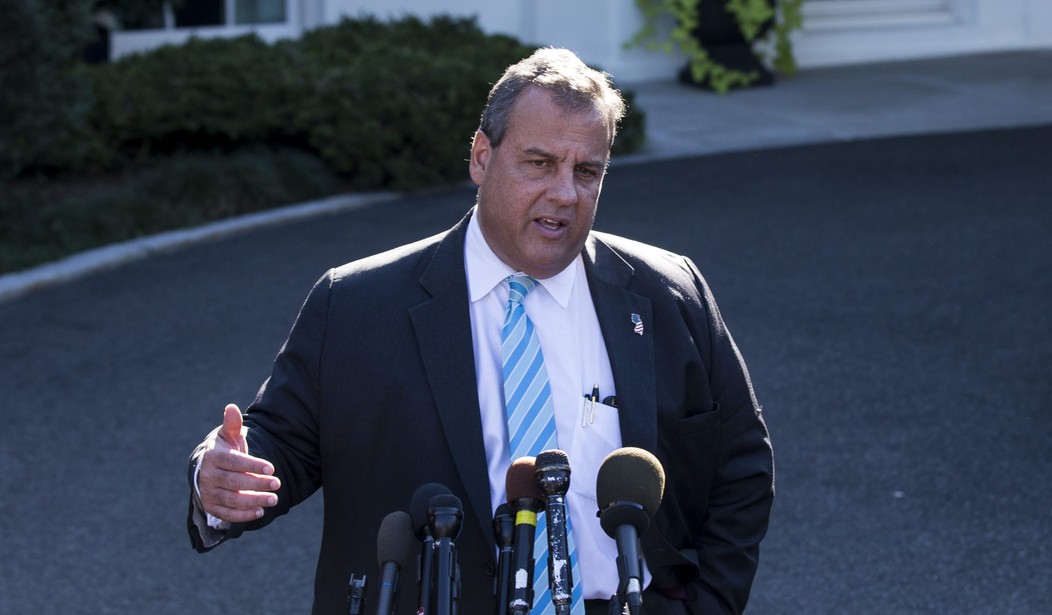The opioid crisis amounts to a Sept. 11-scale tragedy every two and a half weeks, Gov. Chris Christie (R-N.J.) told Congress today while delivering his commission’s recommendations for dealing with the epidemic.
Christie, who chairs President Trump’s Commission on Combating Drug Addiction and the Opioid Crisis, said that the epidemic is killing about 175 people per day, or 3,000 people every 17 days.
“If a terrorist organization was killing 175 Americans a day on American soil, what would we do to stop them?” Christie told the House Committee on Oversight and Government Reform during a hearing in Baltimore at Johns Hopkins Hospital. “We would do anything and everything.”
Christie continued with an explanation that the epidemic did not originate on American street corners but in doctors’ offices and hospitals, where he said pain has been dealt with as if it were a vital issue. When a person exits a hospital, he said, they are required to leave with a “smile on their face.”
While the U.S. represents about 4 percent of the world’s population, it consumes more than 85 percent of the world’s opioids. In 2015, American medical professionals wrote 259 million opioid prescriptions.
During the discussion, Rep. Jamie Raskin (D-Md.) challenged Trump’s leadership on the opioid crisis, citing his public battles on Twitter as evidence that he has not given it proper attention.
“We have tweets about people kneeling during the national anthem,” Raskin said. “We have tweets about who got the Americans out of China from shoplifting charges. I haven’t seen any tweets about the opioid crisis, and I don’t see the kind of passionate intensity of leadership that we need to deal with what you describe as a 9/11 every two weeks in the United States of America.”
Christie shot back that before Trump there was no national commission set up to deal with the crisis, noting that the problem did not begin in January 2016 but has been growing for years. The governor called out presidents Obama and Bush for not focusing on the issue.
“This is the first president who has elevated this to this level, and he deserves great credit for that, and I know it’s very fashionable in a lot of different corners to be critical,” he said, adding that it’s not fair to criticize the president at this point. He also called on Congress to “step up,” as people are dying every day in members’ districts.
The commission, which was established through executive order in March, released 56 recommendations for the crisis on Nov. 1, but the group has not offered a price tag for carrying out those suggestions. Just before the release of the recommendations, Trump declared a public health emergency to address the crisis.
“We are currently dealing with the worst drug crisis in American history,” he said.
Christie echoed those comments today, calling the situation the “greatest and broadest public health epidemic of our lifetime.” The U.S. reported more than 33,000 opiate-related deaths in 2015, the most recent year with reliable data, and projections show that there could be as many as 60,000 deaths in 2016.
“The president has made fighting the opioid epidemic a national priority, and the country is ready to follow his lead,” the governor said. “On behalf of the commission, my state, my family and our country, I urge Congress to do their constitutionally delegated duty and appropriate sufficient funds as soon as possible to implement the commission’s recommendations.”
Christie called on large pharmaceutical companies to invest in opioid alternatives and reforms for incarceration and treatment of addicts. The reason the emergency is not getting proper attention, Christie said, is because Americans are passing moral judgments about addicts.
In conversations all over the country, Christie said that within two minutes addicts have told him that they come from “good families.” The stigma behind addiction, he said, is forcing people to defend their upbringing.









Join the conversation as a VIP Member